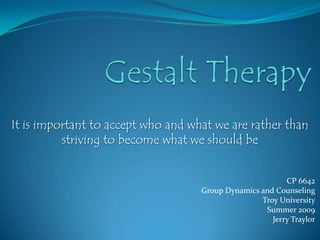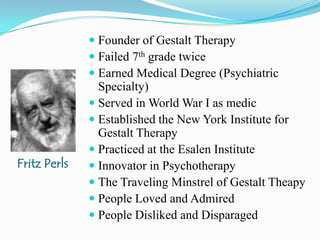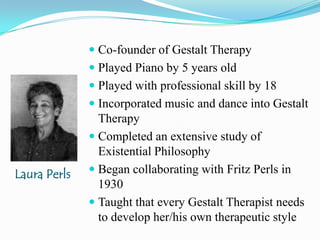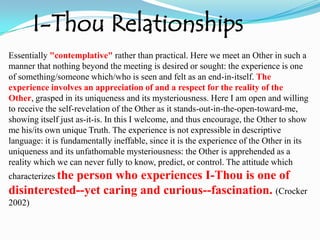Gestalt therapy aims to help clients become aware of themselves and take responsibility for their choices. It focuses on experiencing thoughts and feelings in the present moment rather than past issues. Therapeutic experiments are designed collaboratively between the counselor and client to help the client gain awareness, make choices, and integrate themselves. Some techniques include role playing, dream work, and confronting different parts of oneself. The goal is for clients to fully experience their present realities and accept responsibility for themselves.

























